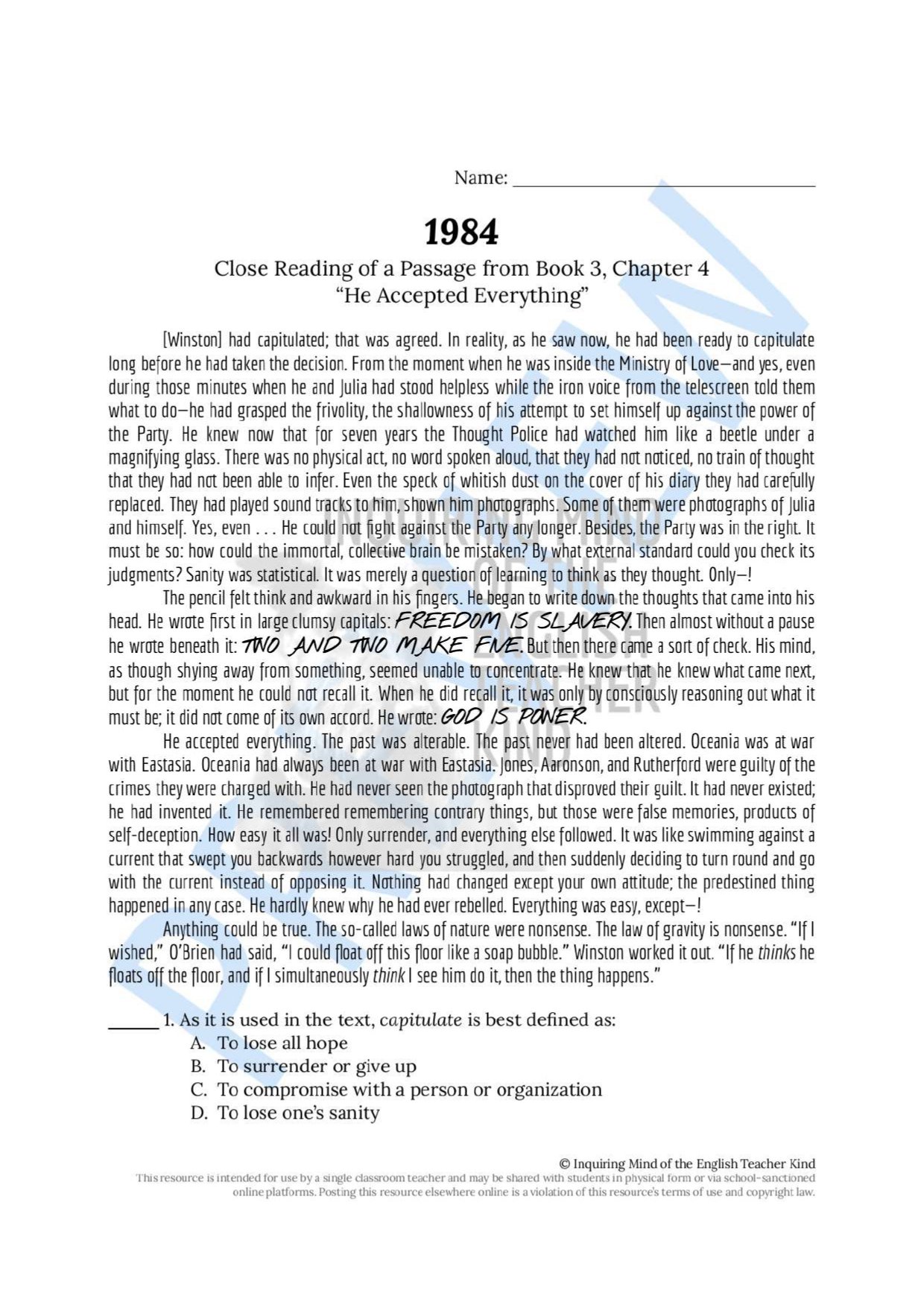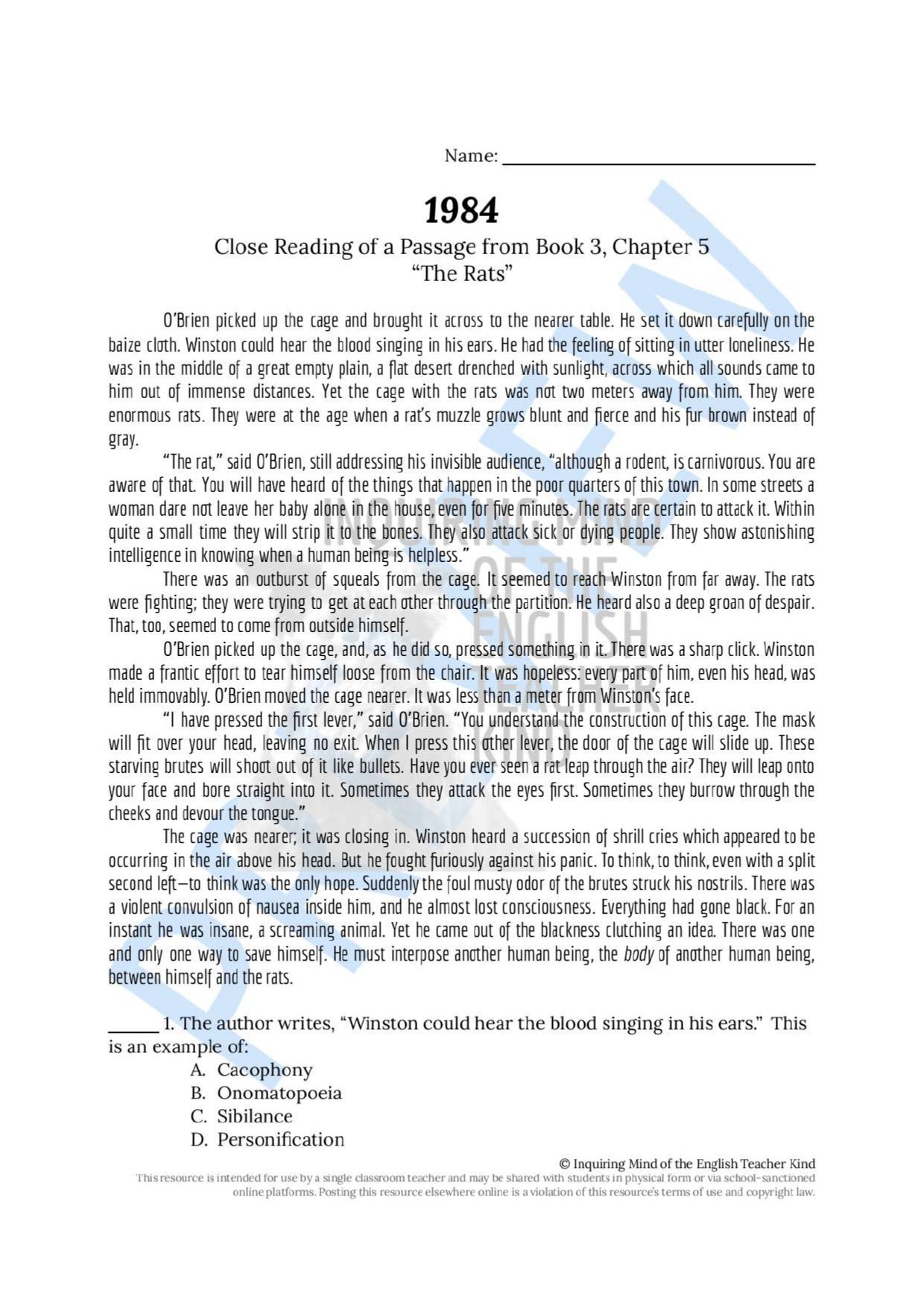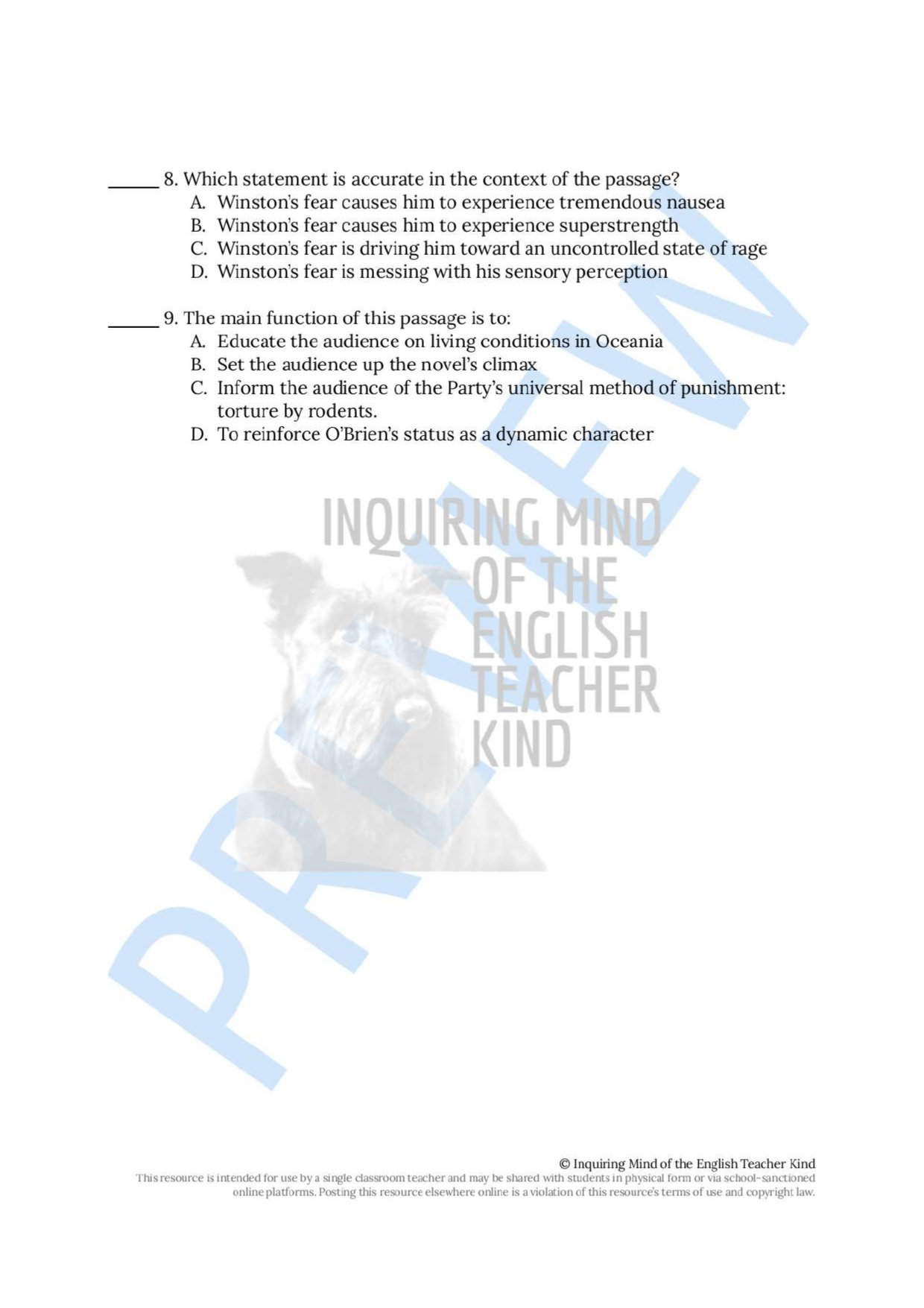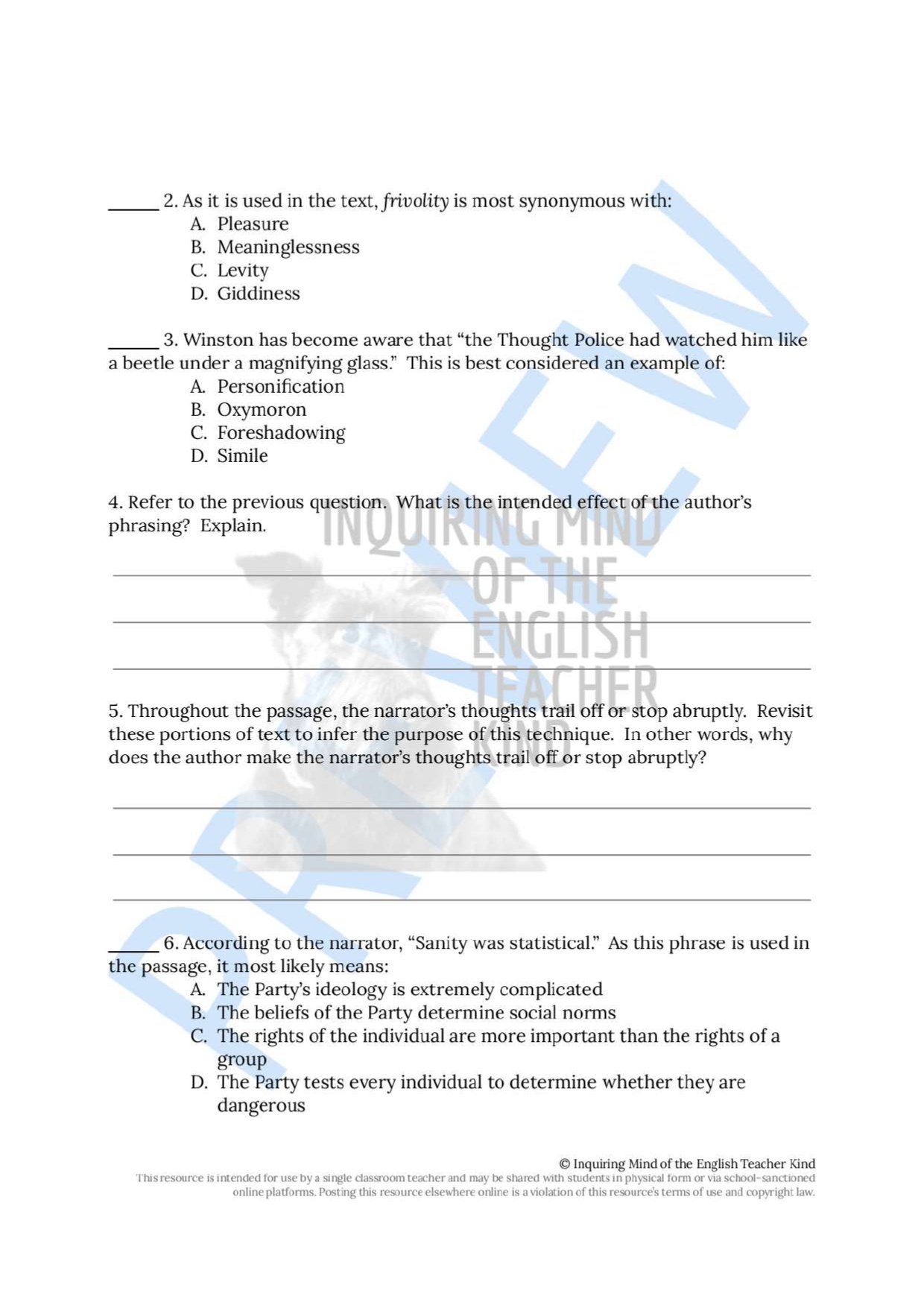 Image 1 of 24
Image 1 of 24

 Image 2 of 24
Image 2 of 24

 Image 3 of 24
Image 3 of 24

 Image 4 of 24
Image 4 of 24

 Image 5 of 24
Image 5 of 24

 Image 6 of 24
Image 6 of 24

 Image 7 of 24
Image 7 of 24

 Image 8 of 24
Image 8 of 24

 Image 9 of 24
Image 9 of 24

 Image 10 of 24
Image 10 of 24

 Image 11 of 24
Image 11 of 24

 Image 12 of 24
Image 12 of 24

 Image 13 of 24
Image 13 of 24

 Image 14 of 24
Image 14 of 24

 Image 15 of 24
Image 15 of 24

 Image 16 of 24
Image 16 of 24

 Image 17 of 24
Image 17 of 24

 Image 18 of 24
Image 18 of 24

 Image 19 of 24
Image 19 of 24

 Image 20 of 24
Image 20 of 24

 Image 21 of 24
Image 21 of 24

 Image 22 of 24
Image 22 of 24

 Image 23 of 24
Image 23 of 24

 Image 24 of 24
Image 24 of 24

























"Robot Dreams" by Isaac Asimov Quiz, Inference Worksheet, and Vocabulary Games
Evaluate general reading comprehension, facilitate vocabulary development, and encourage analysis of characters and plot with these worksheets and assessments covering Isaac Asimov's science fiction short story "Robot Dreams." A plot-based quiz, a vocabulary application handout, a crossword puzzle, a word search game, a close reading inference worksheet, and answer keys are included. Materials are delivered in editable Word Document and printable PDF formats. (Alternatively, a Google Drive bundle option is available.) By engaging with these materials, students will:
Read for literal comprehension
Consult reference materials in order to learn and verify word meanings
Choose the most proper application of words as they are used in sentences
Infer the intended effects of the author's word choices and narrative techniques
Analyze sentence structures with emphasis on the use of an appositive phrase
Analyze the author's stylistic choice to capitalize common noun phrases
Explore how characters think, behave, interact, and develop
Apply knowledge of literary devices including allusion, pun, and personification
Write about literature with clarity, accuracy, and precision
Support claims and inferences with sound reasoning and relevant evidence
Come to class better prepared to discuss works of fiction
Resources are available for teaching short stories of various genres:
Evaluate general reading comprehension, facilitate vocabulary development, and encourage analysis of characters and plot with these worksheets and assessments covering Isaac Asimov's science fiction short story "Robot Dreams." A plot-based quiz, a vocabulary application handout, a crossword puzzle, a word search game, a close reading inference worksheet, and answer keys are included. Materials are delivered in editable Word Document and printable PDF formats. (Alternatively, a Google Drive bundle option is available.) By engaging with these materials, students will:
Read for literal comprehension
Consult reference materials in order to learn and verify word meanings
Choose the most proper application of words as they are used in sentences
Infer the intended effects of the author's word choices and narrative techniques
Analyze sentence structures with emphasis on the use of an appositive phrase
Analyze the author's stylistic choice to capitalize common noun phrases
Explore how characters think, behave, interact, and develop
Apply knowledge of literary devices including allusion, pun, and personification
Write about literature with clarity, accuracy, and precision
Support claims and inferences with sound reasoning and relevant evidence
Come to class better prepared to discuss works of fiction
Resources are available for teaching short stories of various genres:


Preview this resource:
Evaluate general reading comprehension, facilitate vocabulary development, and encourage analysis of characters and plot with these worksheets and assessments covering Isaac Asimov's science fiction short story "Robot Dreams." A plot-based quiz, a vocabulary application handout, a crossword puzzle, a word search game, a close reading inference worksheet, and answer keys are included.























































































































































































































































































